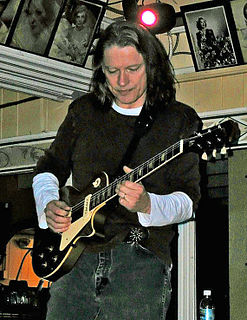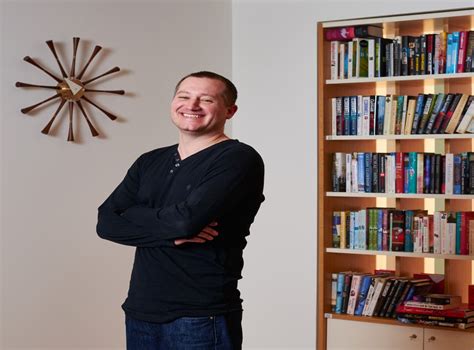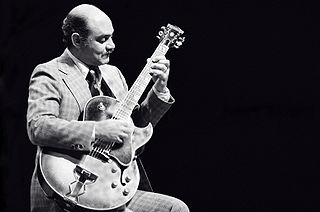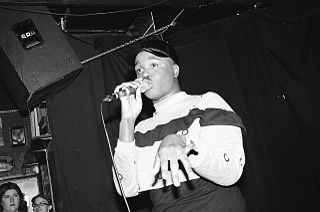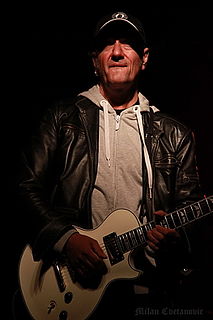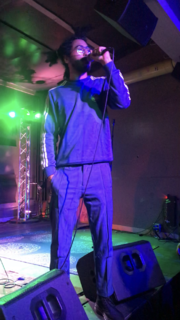A Quote by Robben Ford
I do believe it's possible to play a lot without overplaying. It's when a musician becomes too self-centred that it becomes problematic. You need to be aware of how what you're doing is affecting everyone else, and that's something young musicians often forget. Playing in a band is a shared experience. It's about what everyone is doing together.
Related Quotes
But you're almost eighteen. You're old enough. Everyone else is doing it. And next year someone is going to say to someone else 'but you're only sixteen, everyone else is doing it' Or one day someone will tell your daughter that she's only thirteen and everyone else is doing it. I don't want to do it because everyone else is doing it.
It's a passion when you're doing it for other people and you're doing it for the people around you making the film and the people who are going to see the film, and the giving. When you start thinking about you doing it for some sort of self-gain, then I think it becomes an obsession. It becomes a negative experience.
"The first awareness of the child comes with his ego. He becomes aware of the "I", not of the Self. Really, he becomes aware first of the "thou". The child first becomes aware of his mother. Then, reflectively, he becomes aware of himself. First he becomes aware of objects around him. Then, by and by, he begins to feel that he is separate. This feeling of separation gives the feeling of ego, and because the child first becomes aware of the ego, ego becomes a covering on the Self. "
You have to be intelligent. You have to know what other guys are doing because you're in the back end and you see everything, so you have to alert others what to be ready for, and that makes it easier on everyone. It's just like playing offense, but now you're the quarterback of the defense, and you need to be vocal and take on that leadership responsibility. If you do, everything else becomes easier.
You can't think and play. If you think about what you're playing the playing becomes stilted. You have to just focus on the music I feel, concenctrate on the music, focus on what you're playing and let the playing come out. Once you start thinking about doing this or doing that, it's not good. What you are doing is like a language. You have a whole collection of musical ideas and thoughts that you've accumulated through your musical history plus all the musical history of the whole world and it's all in your subconscious and you draw upon it when you play
I don't think that those things [so called common practice] ever truly existed in the way that we like to believe that they do, the way we learn about them in music history class. Those things are defined at least decades after they happen. And even then, it's a fallacy because when you're in the moment, when you're in a thriving scene of musicians, inevitably everyone is going to be doing something completely different from everyone else
I have a theory that musicians recognize each other and if they are destined to collaborate together they will. Mainly, they recognize each other according to the class they belong to. If they are punk-rocker kids from the neighborhood, they are going form a band. If they happen to be musicians that are going to play in pubs and restaurants, they are going to recognize each other, form a band and play together. If it's about musicians that are playing jazz and are going to jazz festivals, for e.g., then they are going to meet and work together.
I'll never forget John Heard doing Shakespeare In The Park with Raul Julia and Richard Dreyfuss. It was 30 years ago, I guess. It was Othello, and John Heard played Cassio, and while everyone else was "Acting!" Heard came on talking normal, and everyone in the audience was leaning in to follow him. I wasn't doing that in Bus Stop. I think in that performance, I was putting it out a little too much.
Music is a universal language insofar as you don't need to know anything else about a musician that you are playing with other than that they can play music. It doesn't matter what their music is, you can find something that you can play together, with what their culture is. The dialect part of it comes into play, but nothing like the differentiation that language sets up, for example.
I define self-control, in the beginning of life, as the choice of achieving what I really want by doing things I really don't want to do. Once this becomes a habit, discipline becomes the choice of achieving what I really want by doing the very things I now want to do! I really believe that a disciplined life becomes a joy--but only after we have worked hard to practice it.
The goal with my music is to maintain a certain honesty and quality. That sounds pretty pretentious as if I'm trying to imply no one else is doing this - I don't believe that. I merely mean to say that what everyone else is doing easily, that is to say, creating without impediment - is sort of difficult for me.
